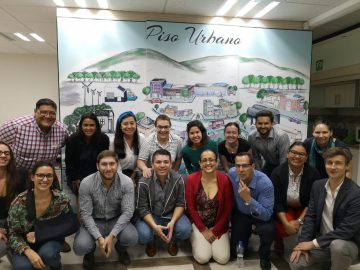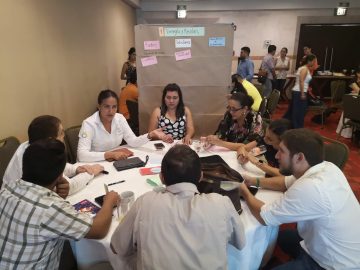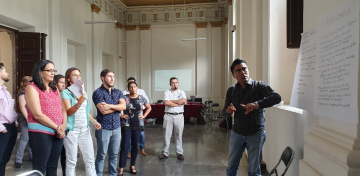With the objective of promoting international learning processes, the Vertically Integrated Climate Policies (VICLIM) program Mexico and Costa Rica promoted a study trip for knowledge exchange, sharing experiences and success stories on actions to combat climate change in a subnational level.
The meeting was held in Mexico, mainly in Jalisco and the capital of the country. The topics addressed were multilevel governance, instruments and local policies for the fulfillment of the respective Nationally Determined Contributions (NDC), as well as climate financing and climate action at local level.
The delegation from Costa Rica was mainly composed of representatives of the Ministry of Environment and Energy (MINAE), Institute for Municipal Development and Advice (IFAM), National Union of Local Governments (UNGL) and representatives responsible for environmental issues in the municipalities of San Ramon, Santa Cruz, Pococi, Quepos, Osa, Oreamuno and Goicochea.

The event started in Guadalajara, Jalisco, with the Ministry of Environment and Territorial Development (SEMADET) of the State, where the state shared its experience with Jalisco State’s Environmental Protection Fund (FEPAJ) as well as with climate action mainstreaming. During this session both countries identified areas of opportunity in the vertical approval of information, updating it, strengthening and creating alliances between actors, promoting cross-linking of existing regulations to support the projects.
During the second day of the study trip, the Metropolitan Area Development Planning and Management Institute (IMEPLAN) of Guadalajara, presented its governance model and the metropolitan climate change plan. Likewise, during this meeting Project assistance was provided by Information and Communication Technologies for Adaptation to Climate Change (TIC-A) with Arturo Cadena. Subsequently, the exchange continued in Puerto Vallarta, mainly with municipalities of the Intermunicipal Board of the Sierra Occidental and Costa (JISOC), where issues related to public policy, adaptation, biodiversity, agriculture, among others, were addressed.

During the third part of the event, attendees were trained in the use of Social Cost-Benefit Analysis Tool for Climate Change Measures. Subsequently, on the fourth day an exchange of experiences on cities and climate change was carried out with the Climate Protection in the Mexican Urban Policy (CiCClim) Program, where participants highlighted the role of cities in combating climate change and the importance of raising public awareness as part of climate action.
On the fourth day of this event, an exchange session was held where both countries presented success stories on financing in projects for the integral management of solid waste. Finally, the visit of the Costa Rica delegation concluded with a meeting with the General Directorate of Climate Change Policies (DGPCC) of the Ministry of Environment and Natural Resources (SEMARNAT) and the Mexican-German Climate Change Alliance program of GIZ. One of the main subjects of this session and possible area of collaboration between the two countries was the work on the Monitoring, Reporting and Verification (MRV) systems of contributions from sub-national levels to national climate goals.

The event took place from August 19th to 23rd of this year and was mainly driven by the global project of Vertically Integrated Climate Policies (VICLIM) of the Deutsche Gesellchaft für Internationale Zusammenarbeit (GIZ) GmbH. This program is implemented in five countries, South Africa, Indonesia, Georgia, Costa Rica and Mexico.
